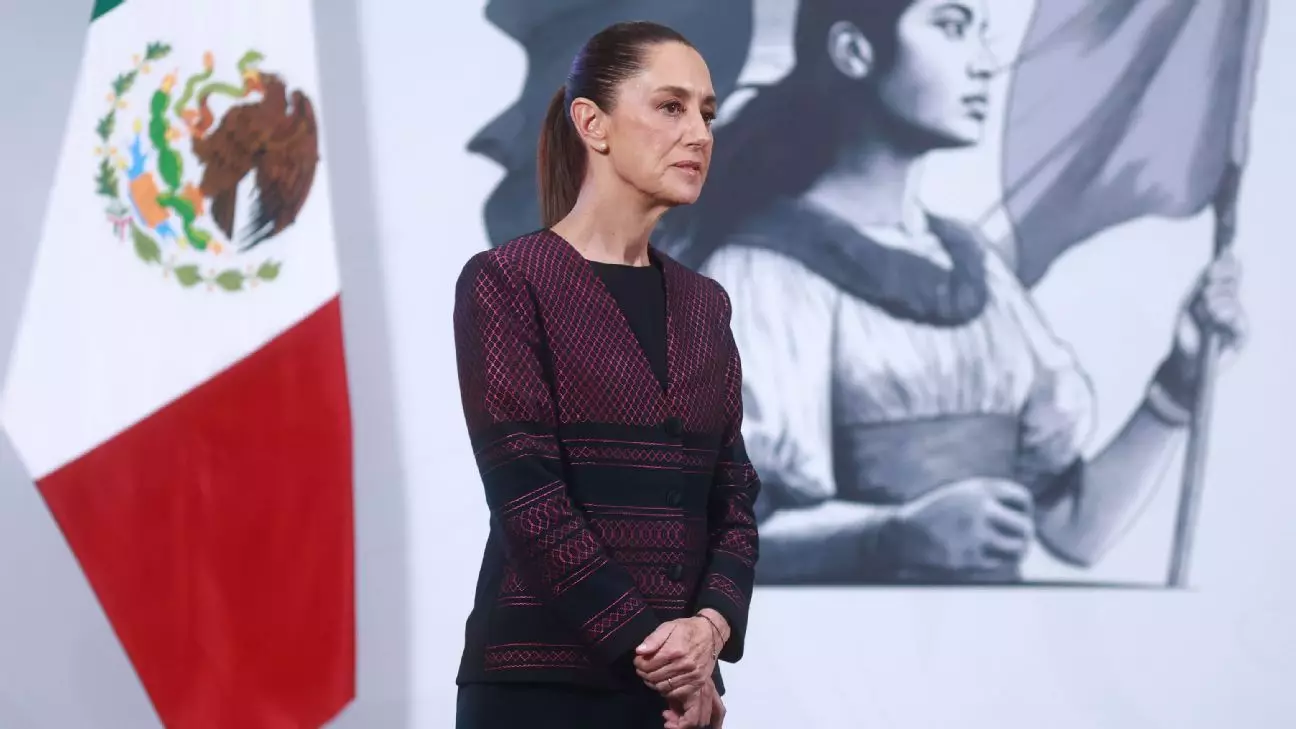As the vibrant atmosphere of a major soccer match between Mexico and the Dominican Republic envelops Los Angeles this weekend, an unsettling backdrop looms over the event. Mexican President Claudia Sheinbaum’s direct plea to U.S. authorities to refrain from immigration enforcement during the Gold Cup is more than just a request; it’s emblematic of a broader struggle for the rights and dignity of immigrant communities in America. With heightened tensions and a military-style approach to immigration enforcement, the approach of U.S. Customs and Border Protection (CBP) raises ethical questions about the intersection of public safety and human rights.
The recent history of aggressive immigration raids under previous administrations has instilled a climate of anxiety and fear among undocumented immigrants. Events designed for community celebration, like soccer matches, are now overshadowed by the potential threat of detention, a sentiment echoed powerfully by Sheinbaum. Her statement that “we call for none to be taken by U.S. Immigration and Customs Enforcement” speaks volumes to those who recognize the vulnerability of migrant lives, often reduced to statistics in a policy-driven framework that disregards their humanity.
Symbols of Protest and Solidarity
Amidst the looming threat of immigration enforcement, the significance of the soccer match transcends sports; it has become a symbol of resistance and unity for countless immigrants and their supporters. The sight of demonstrators brandishing Mexican flags should not be met with alarm but rather warmth and solidarity. Rather than dismissing these demonstrators as “potential provocations,” as Sheinbaum remarked, we should recognize their display as vital expressions of identity and resilience against systematic oppression.
Indeed, the portrayal of immigrants as instigators of violence or unrest is an outdated trope that simply does not hold up against the reality of their contributions to society. Mexican nationals in the U.S. are often the backbone of the labor force, working in essential jobs that others may shy away from. It’s crucial to confront the narrative that demonizes these hardworking individuals who enrich and stabilize local economies.
Sporting Events as a Microcosm of Larger Issues
The juxtaposition of a festive sporting event against a backdrop of potential enforcement actions serves as a stark reminder of the challenges faced by immigrant communities. Although the CBP maintains that their presence at such events is for security, there’s an undercurrent of intimidation that cannot be ignored. The idea that the agency intends to ‘suit up’ for events heightens concerns that rather than ensuring safety, they are creating apprehension in communities that already feel marginal.
Furthermore, Sheinbaum’s reassurances regarding protocols established by Mexican consulates illustrate the proactive measures being undertaken to protect citizens. Yet, isn’t it disheartening that such protocols are necessary when attending a sporting event that’s supposed to unite individuals through a shared love for the game? The paradox encapsulates the ongoing struggle for immigrant justice in America, where celebration coexists with anxiety.
With Mexico set to play in multiple cities across the U.S. in upcoming matches, the tournament serves as a poignant reminder that immigrant experiences are not merely challenges to be managed but narratives that deserve acknowledgment and respect. As the echoes of chant resonate from the stands, they become part of a larger chorus advocating for dignity, respect, and humanity amidst systemic challenges.


Leave a Reply